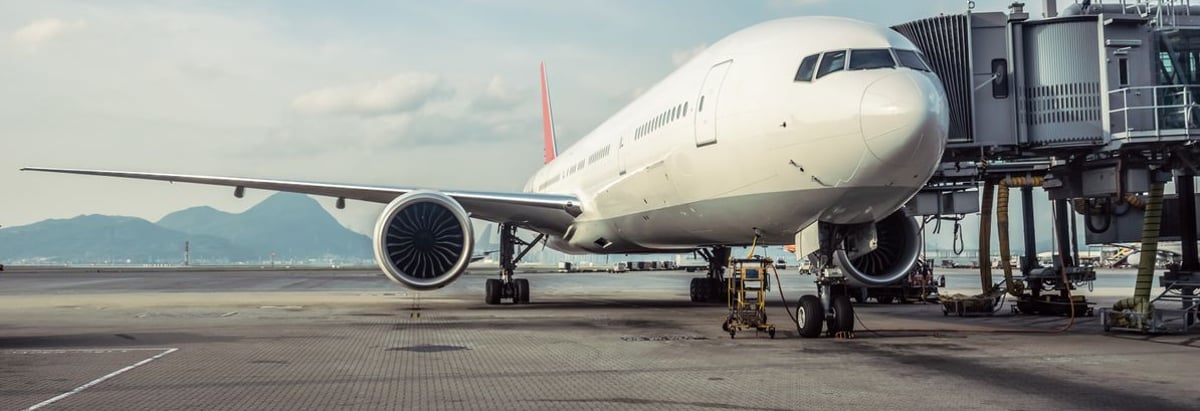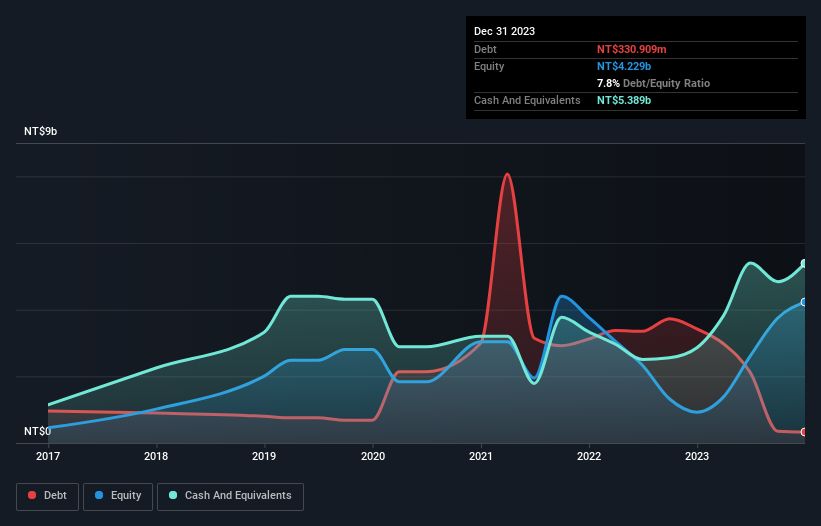
Some say volatility, rather than debt, is the best way to think about risk as an investor, but Warren Buffett famously said that 'Volatility is far from synonymous with risk.' It's only natural to consider a company's balance sheet when you examine how risky it is, since debt is often involved when a business collapses. As with many other companies Tigerair Taiwan Co., Ltd. (TWSE:6757) makes use of debt. But the real question is whether this debt is making the company risky.
When Is Debt Dangerous?
Debt and other liabilities become risky for a business when it cannot easily fulfill those obligations, either with free cash flow or by raising capital at an attractive price. Part and parcel of capitalism is the process of 'creative destruction' where failed businesses are mercilessly liquidated by their bankers. However, a more usual (but still expensive) situation is where a company must dilute shareholders at a cheap share price simply to get debt under control. By replacing dilution, though, debt can be an extremely good tool for businesses that need capital to invest in growth at high rates of return. The first step when considering a company's debt levels is to consider its cash and debt together.
Check out our latest analysis for Tigerair Taiwan
What Is Tigerair Taiwan's Debt?
The image below, which you can click on for greater detail, shows that Tigerair Taiwan had debt of NT$330.9m at the end of December 2023, a reduction from NT$3.43b over a year. But it also has NT$5.39b in cash to offset that, meaning it has NT$5.06b net cash.

How Strong Is Tigerair Taiwan's Balance Sheet?
According to the last reported balance sheet, Tigerair Taiwan had liabilities of NT$6.45b due within 12 months, and liabilities of NT$7.36b due beyond 12 months. On the other hand, it had cash of NT$5.39b and NT$321.2m worth of receivables due within a year. So its liabilities total NT$8.10b more than the combination of its cash and short-term receivables.
Tigerair Taiwan has a market capitalization of NT$18.4b, so it could very likely raise cash to ameliorate its balance sheet, if the need arose. But it's clear that we should definitely closely examine whether it can manage its debt without dilution. Despite its noteworthy liabilities, Tigerair Taiwan boasts net cash, so it's fair to say it does not have a heavy debt load!
It was also good to see that despite losing money on the EBIT line last year, Tigerair Taiwan turned things around in the last 12 months, delivering and EBIT of NT$2.4b. The balance sheet is clearly the area to focus on when you are analysing debt. But you can't view debt in total isolation; since Tigerair Taiwan will need earnings to service that debt. So when considering debt, it's definitely worth looking at the earnings trend. Click here for an interactive snapshot.
Finally, while the tax-man may adore accounting profits, lenders only accept cold hard cash. Tigerair Taiwan may have net cash on the balance sheet, but it is still interesting to look at how well the business converts its earnings before interest and tax (EBIT) to free cash flow, because that will influence both its need for, and its capacity to manage debt. Happily for any shareholders, Tigerair Taiwan actually produced more free cash flow than EBIT over the last year. That sort of strong cash generation warms our hearts like a puppy in a bumblebee suit.
Summing Up
Although Tigerair Taiwan's balance sheet isn't particularly strong, due to the total liabilities, it is clearly positive to see that it has net cash of NT$5.06b. And it impressed us with free cash flow of NT$5.5b, being 234% of its EBIT. So we are not troubled with Tigerair Taiwan's debt use. There's no doubt that we learn most about debt from the balance sheet. But ultimately, every company can contain risks that exist outside of the balance sheet. For example - Tigerair Taiwan has 1 warning sign we think you should be aware of.
If you're interested in investing in businesses that can grow profits without the burden of debt, then check out this free list of growing businesses that have net cash on the balance sheet.
Valuation is complex, but we're here to simplify it.
Discover if Tigerair Taiwan might be undervalued or overvalued with our detailed analysis, featuring fair value estimates, potential risks, dividends, insider trades, and its financial condition.
Access Free AnalysisHave feedback on this article? Concerned about the content? Get in touch with us directly. Alternatively, email editorial-team (at) simplywallst.com.
This article by Simply Wall St is general in nature. We provide commentary based on historical data and analyst forecasts only using an unbiased methodology and our articles are not intended to be financial advice. It does not constitute a recommendation to buy or sell any stock, and does not take account of your objectives, or your financial situation. We aim to bring you long-term focused analysis driven by fundamental data. Note that our analysis may not factor in the latest price-sensitive company announcements or qualitative material. Simply Wall St has no position in any stocks mentioned.
About TWSE:6757
Outstanding track record with flawless balance sheet.
Similar Companies
Market Insights
Community Narratives



